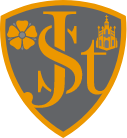Computing
At St Joseph’s, we understand how important computing is in today’s world. Technology is part of everyday life, and we want our children to grow up confident and capable in using it. That’s why we’ve designed a computing curriculum that helps pupils understand how computer systems work and how technology can be used to communicate, collaborate, create, and express ideas.
We use a structured and progressive approach to ensure that children develop the knowledge and skills they need to become digitally literate. Our chosen platform, Purple Mash, supports this journey with engaging, age-appropriate resources that cover everything from coding and data handling to online safety and digital creativity.
In the Early Years Foundation Stage, computing is introduced through play and exploration. Children use digital tools to create artwork, control simple programmable toys, and take part in role play that reflects how technology is used in the real world. These experiences help them build confidence and develop important communication and problem-solving skills.
As children move into Key Stage 1, they begin to explore computing in more structured ways. They learn how to write and test simple programs, understand how algorithms work, and use logical reasoning to predict and explain what a program will do. They also learn how to organise and retrieve digital information, and how to stay safe and respectful when using technology. Importantly, they begin to recognise how technology is used beyond the classroom—in homes, workplaces, and the wider world.
By the end of Key Stage 1, our pupils have a strong foundation in computing and are well-prepared to build on their skills as they move through the school. We’re proud to support them in becoming confident, creative, and responsible users of technology.

